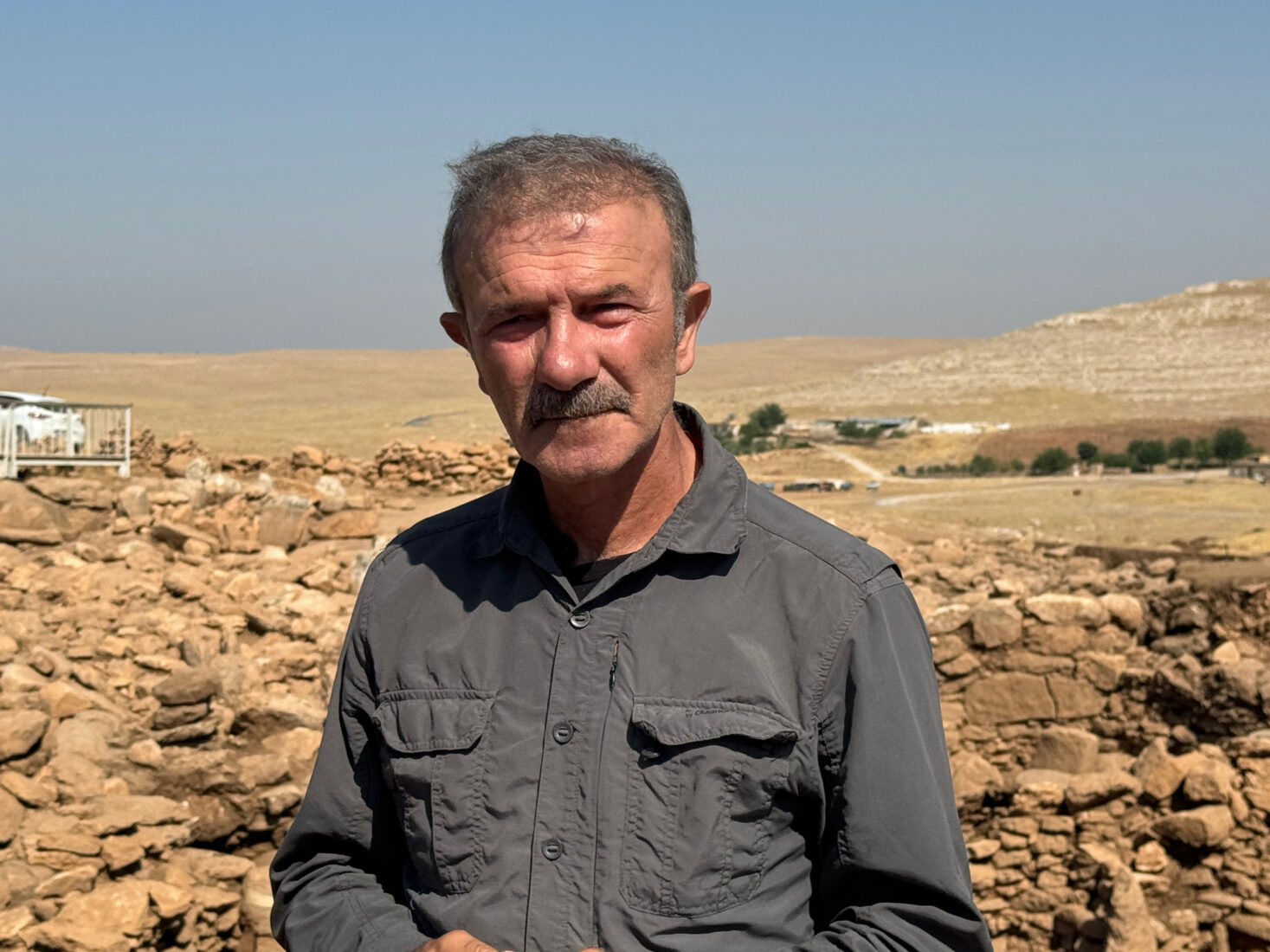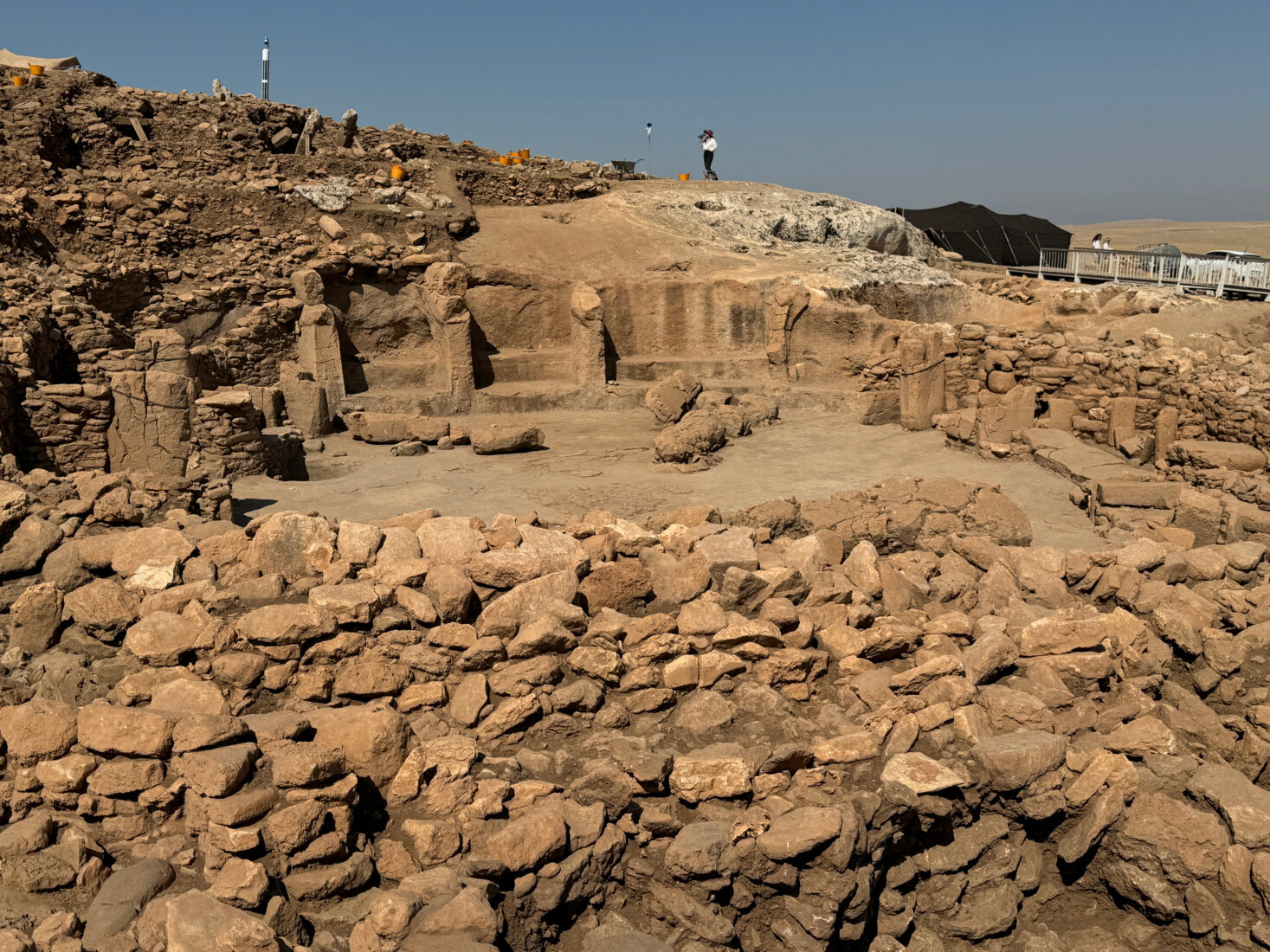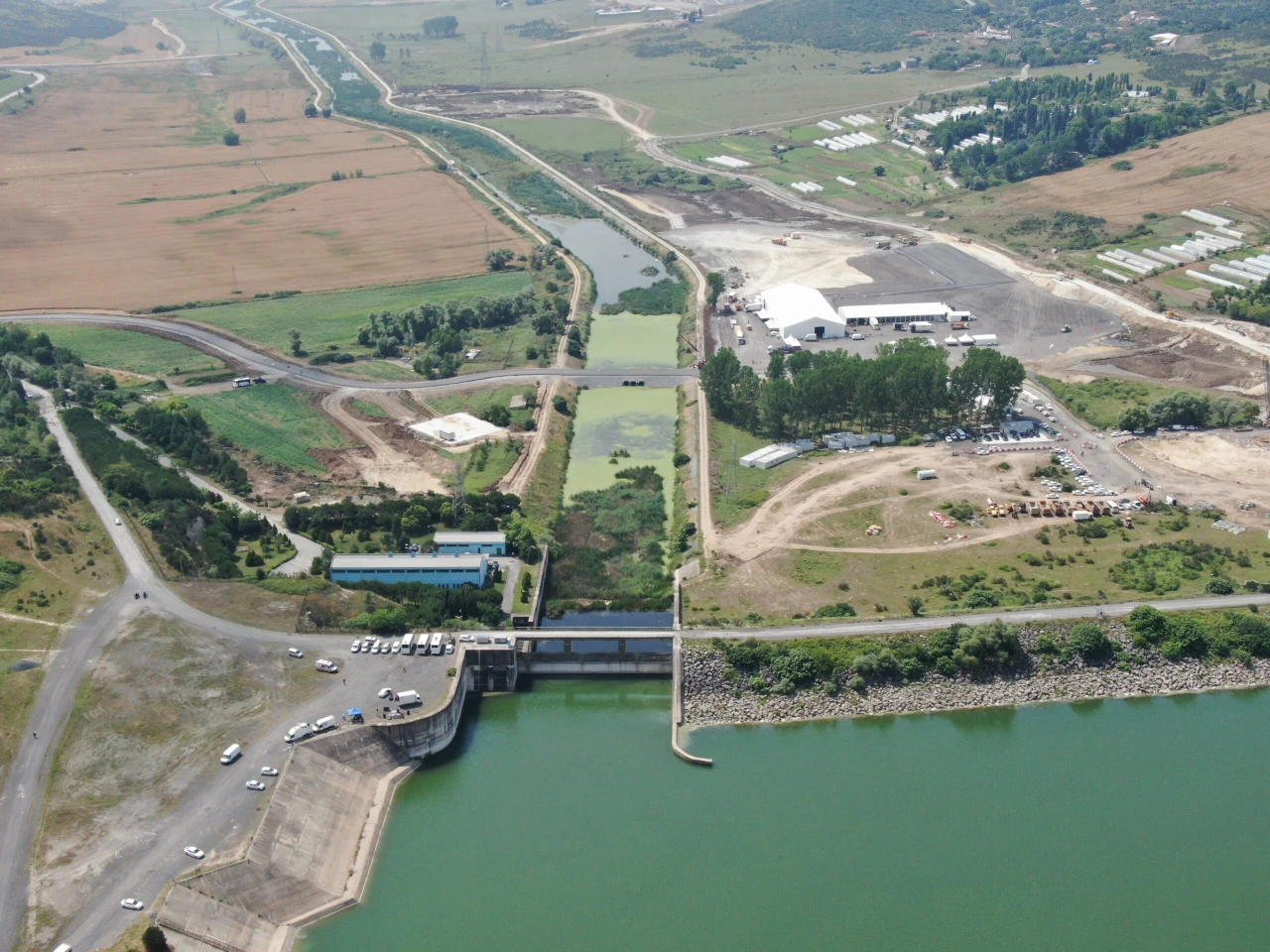Evidence of early kitchen culture found in Türkiye’s Karahantepe
 Professor Necmi Karul and figure of a running wild donkey carved on stone from the Neolithic period during excavations at Karahantepe in Sanliurfa, Türkiye, August 29, 2024. (AA Photo)
Professor Necmi Karul and figure of a running wild donkey carved on stone from the Neolithic period during excavations at Karahantepe in Sanliurfa, Türkiye, August 29, 2024. (AA Photo)
The Chairman of the Anatolian Gastronomy Foundation Board of Trustees, Chef Omur Akkor, announced that recent laboratory reports have confirmed the presence of a food preparation and communal dining culture in Karahantepe dating back 11,500 to 12,000 years. This discovery is the earliest of its kind recorded globally.

Ancient kitchen traditions revealed in Sanliurfa
According to a statement from the Sanliurfa Governorship, excavations continue across ten different sites under the “Tas Tepeler Project” (Stone Hills Project), an initiative aimed at uncovering the region’s rich history.
Chef Omur Akkor, who has been actively involved in the Gastronomy Project initiated by Governor Hasan Sildak, highlighted that traces of what is considered the earliest known kitchen culture were found in Karahantepe.
“Laboratory reports have verified this remarkable finding,” Akkor stated.

Journey back to beginnings of cuisine
Akkor, who has been a part of the Tas Tepeler Project team for three years, expressed the profound feeling of tracing the lives of ancient people through these excavations. “It’s an unparalleled experience to stand where people were preparing food, grinding wheat, baking bread, and crafting utensils 12,000 years ago,” said Akkor. “This is where continuity began, and it is still present today.”
He further noted, “We have yet to find any other place on Earth where life has continued uninterrupted for 12,000 years. That’s what makes Sanliurfa and the Tas Tepeler Project so significant. The way of life that began here is still reflected in the food we eat today, like the liver kebabs and traditional bread we find in local markets. Sanliurfa is also the homeland of wheat, and the endemic crops grown here, such as the rice cultivated on the slopes of Karacadag, play a crucial role in preserving the region’s culinary heritage.”
Tracing evolution of diet through a millennia
The research delves into how ancient people sustained themselves and how these eating habits evolved over the millennia. “We are investigating the question, ‘What did people eat in the past, how did it change over time, and what do we eat today?’” said Akkor, who works in collaboration with around 20 universities. “Professor Necmi Karul has been an invaluable asset to our team. This year, scientific reports have confirmed the presence of bread in the findings, supported by the discovery of grinding stones and sickles used for cutting wheat at the site. These discoveries affirm that bread-making activities were taking place here, as demonstrated by the laboratory reports.”

Global attention turns to Karahantepe
Highlighting the global interest in these findings, Akkor remarked, “We once thought bread-making began in Egypt 3,000 years ago, then new findings suggested it started 8,500 years ago at Catalhoyuk. But now, we have definitive evidence that bread was made here in Karahantepe 12,000 years ago. The world is curious about Sanliurfa right now, and there is much more work to be done. We are uncovering various other food items, proving that this region is where continuity began. At the dawn of this uninterrupted lifestyle, people were already gathering to cook, dine together, and set up kitchens inside their homes. There’s no other place in the world that can claim such a long, unbroken history of life as we have here. Life that began back then is still thriving today.”
Future of the Tas Tepeler Project
Governor Hasan Sildak, also quoted in the statement, thanked Chef Akkor for his efforts. He emphasized the importance of the work being done, noting that Akkor’s participation in the excavation and his efforts to share the findings with the world are vital. “Both Professor Necmi Karul and Chef Omur Akkor, along with the entire excavation team, are doing an incredible job. Their approach goes beyond mere excavation; they look at the broader picture, considering all aspects of life and the environment. This comprehensive perspective excites me. We will continue to support the Tas Tepeler Project, which is constantly bringing new discoveries to light.”
The discoveries at Karahantepe in Sanliurfa reveal significant insights into the origins of culinary culture, dating back over 11,000 years. These findings not only enhance our understanding of ancient human practices but also highlight the region’s vital role as a center for early food preparation and communal dining. With ongoing excavations, the Tas Tepeler Project promises to uncover even more about humanity’s culinary history, capturing global interest in this remarkable archaeological site.



